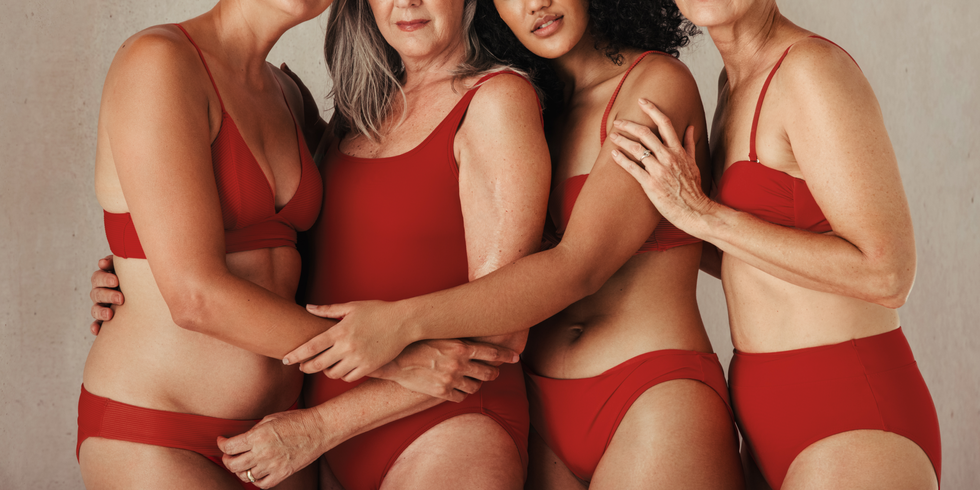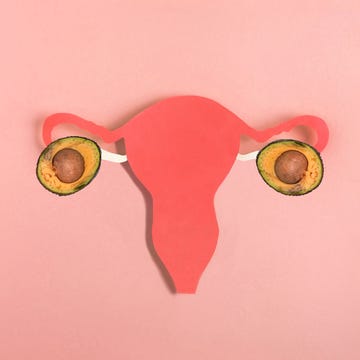More than a billion people worldwide will be in menopause by 2025. Every day in the United States, an estimated 6,000 Gen Xers—like the two of us—are entering menopause. We’re both proud to be part of the generation breaking the silence and smashing the stigma that has long shrouded this transition.
Leading women like Oprah Winfrey, Michelle Obama, and Tracee Ellis Ross have gone public with their experiences. By all accounts, the menopause market is booming, from emerging telehealth enterprises to wellness empires. More and more employers are implementing menopause-friendly work policies, a topic now regularly covered in journals like Harvard Business Review. Even Congress has gotten the memo; last fall the bipartisan Menopause Research Act of 2022 was introduced in the House, a bill that would require an evaluation of menopause-related research and a federal plan of action to resolve any gaps.
More From Oprah Daily

It would seem we are on the brink of a new movement—dare we say, era—for menopause. And to be honest, that gives us pause. Because any time a social shift is so deliberately defined, so rapturously reflected and reported on, the first question we inevitably ask ourselves is this: Who stands to be left behind?
The New York Times recently stepped up to answer this question, posting a solicitation for testimonies titled “What Is Menopause Like for Women of Color?” The accompanying article points out that race and socioeconomic status can play a factor in the menopause experience, whether it presents as severity or duration of specific physical responses or symptoms.
On its face, the Times’ query is not an unreasonable one. Indeed, in our respective advocacy practices, each of us is often asked, “Why do Black women have different menopause experiences?” But it is crucial that the impulse to ask and answer this question doesn’t devolve into an acceptance of assumptions: namely, that there is something inherently flawed about Black women and women of color (and women-identified or gender-expansive people, too).
First, there’s danger in binary story building. We’ve witnessed how quickly and pervasively this impulse has permeated the growing national coverage of menopause, especially as it pertains to race. Our worry is that the medical community has already and will continue to designate a “normal”—and therefore “abnormal”—menopause experience. Throughout our nation’s history, whiteness, and the experiences of white people, have been centered as the norm. Whatever happens outside of the norm is othered or marginalized.
History also teaches us that toying with “normalcy”—without considering the diversity of experience and applying critical analysis—can be a slippery slope, one that reinforces implicit bias and health disparities based on gender and race. A designation of “abnormal” quickly becomes a cudgel. For example, women are twice as likely to experience mental health issues as men, but as many as half are misdiagnosed. Such is also the case for the U.S.’s crisis-level maternal mortality rates as it relates to racial bias. The underlying logic is that there is something physiologically different or faulty about non-white women, implying their basic lack of humanity. This is especially true for Black women, who are three times more likely to die in childbirth than white women.
For Black women, humanity and personhood have tacitly been questioned regarding pain, symptomatology, and treatment extending back to their arrival in this country as enslaved people. This thinking made it possible for the “Father of Gynecology,” J. Marion Sims, to perform medical experiments on enslaved women—including three named Lucy, Arnacha, and Betsy—without anesthesia or consideration for the immediate and lifelong pain they would and did experience. While white women during this time period were put on a patriarchal pedestal of the “cult of true womanhood,” Black women, enslaved or not, were deemed less than human.
Which brings us back to menopause—and the flurry of media attention now surrounding it. At its core, menopause is not a “one size fits all” experience but a very individualized and dynamic transformation. Menopause is physical, yes—and it is also cultural and social and political. The context surrounding one’s menopause journey—our family of origin, culture, and systemic oppression—plays a major role in health equity, generally, and is further amplified or exacerbated by our intersectional identities, which include everything from gender and race to socioeconomic class, sexuality, lived experience, and educational background, among others. All of which is why it is critical to intentionally call out the biases behind how people experience menopause; in turn, this will better ensure respectful treatment and quality care.
Addressing the connective tissue between varying experiences isn’t just about medical disparity. Words like normal have policy implications, too. Given that we are on the precipice of more menopause reforms in workplaces and heightened interest on the part of legislators, we need to be careful that disparities aren’t baked into law. For example, up until now, menopause-focused legal claims filed under the Americans with Disabilities Act have largely hinged on whether the court considers menopause a “normal consequence of human aging.” As soon as any benchmark is set for normalcy, anything outside of that range may face political headwinds or different treatment under the law.
Here’s the mandate by which we abide—and we encourage the same of others: Tread carefully in attempts to define or drive the narrative of what is a natural or “normal” menopause. It will inevitably play a role in how millions are treated by healthcare providers, policymakers, and employers, and in the body politic.
Any content published by Oprah Daily is for informational purposes only and does not constitute medical advice, diagnosis, or treatment. It should not be regarded as a substitute for professional guidance from your healthcare provider.
Omisade Burney-Scott is a social justice advocate focused on reproductive, gender, and healing justice and founder of the multidisciplinary culture and narrative shift project Black Girl’s Guide to Surviving Menopause (BGG2SM). She is a founding member of the cultural organizing and healing justice organization SpiritHouse South and currently serves on the Wisdom Circle of the Acorn Center for Restoration and Freedom.
Jennifer Weiss-Wolf is a longtime advocate, attorney, and writer on issues surrounding gender rights and politics, and the executive director of the Birnbaum Women’s Leadership Network at NYU Law. She is the author of Periods Gone Public: Taking a Stand for Menstrual Equity (2017) and the forthcoming Period. Full Stop. The Politics of Menopause (NYU Press, 2025).
In a refreshingly candid conversation with Oprah Daily Insiders, Oprah, Maria Shriver, Drew Barrymore, and doctors Sharon Malone, Heather Hirsch, and Judith Joseph, we set the record straight on all things menopause. Become an Oprah Daily Insider now to get access to this conversation and the full "The Life You Want” Class library.













